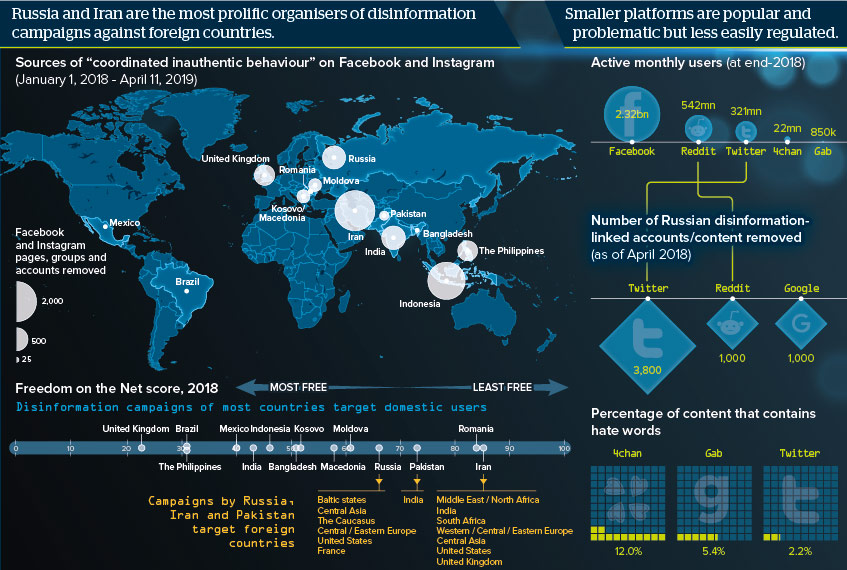Online disinformation campaigns will proliferate
As polls approach in regions such as Europe, Canada and Australia, disinformation has become a major worry.
Source: Facebook, Twitter, 4chan, Zannetou et al 2018, Hine et al 2017, Freedom House, media reports
Outlook
Since the disclosure of Russian meddling in the 2016 US elections, social media disinformation campaigns have proliferated due to their low cost, vast scale and unprecedented speed. Their actual scale almost certainly far exceeds the number of accounts that have been removed.
Much of this activity is likely to remain domestically focused, while Russia and Iran will continue adapting their campaigns to tightening social media content filters. However, as the 2017 French experience shows, their effectiveness is not guaranteed; much depends on the target country’s response.
Pressure on ‘big tech’ to do more is rising, but technical and human filters are as imperfect as regulatory solutions. Notably, smaller platforms and fringe communities are controlled lightly, if at all, despite their role in fuelling political polarisation and disinformation.
Impacts
- Regulation will focus on ‘big tech’ due to their global dominance.
- Governments will trial creative approaches to neutralise online disinformation, including drowning it out with facts.
- Over-regulation of ‘big tech’ would inadvertently erode freedom of expression online.
- Those with more extreme views will dominate social media conversations on mainstream platforms, accentuating online polarisation.
See also
- State disinformation operations will multiply - Nov 20, 2019
- Governments step up social media capabilities - Oct 22, 2019
- Post-Mueller-report fights shift to US Congress - Apr 24, 2019
- Fringe online communities pose new societal risks - Apr 12, 2019
- Australia’s new rules risk eroding internet freedoms - Apr 10, 2019
- ‘Big tech’ faces tighter rules across multiple areas - Mar 1, 2019
- More graphic analysis
